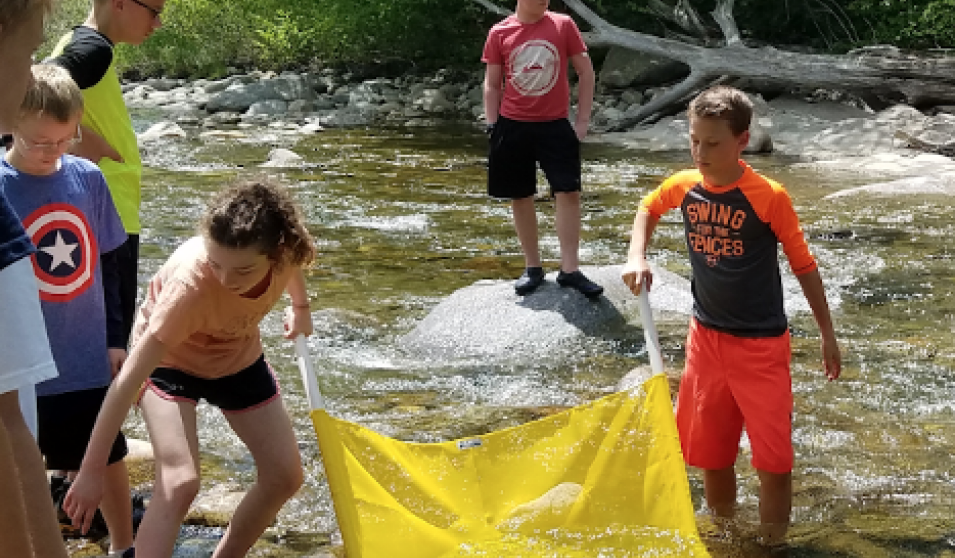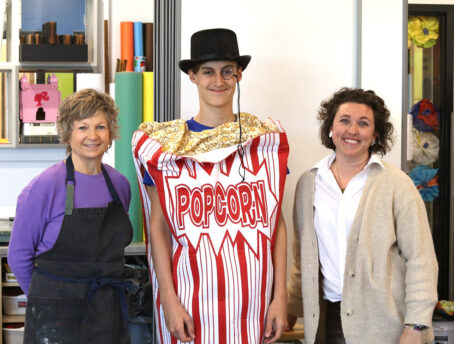Thank you to Grants in Place recipient, Amber Comtois, for submitting this summary of her 2018-19 place-based project, the Baker River Project. Amber is a teacher at Wentworth Elementary School, and her project was part or our New England Hub partnership with the Rural Educational Leaders Network and Plymouth State University.
We believe this is an excellent place-based effort!
PROJECT SUMMARY
BY AMBER COMTOIS
How do you create passionate advocates who contribute to their community? Get em’ out there, knee-deep immersed in purposeful hands-on study.
Our school may be small, but it is mighty! Wentworth Elementary is located within 1500 ft of the Baker River. This river provides much more for our community than just its presence; it intertwines our families, our school, and our economy.
With the help of the Rural Schools Collaborative grant and multiple community partners, our middle school students were able to become citizen scientists. W.E.S. teachers, Chris Misavage and Amber Comtois, designed the middle school Baker River Study to help students become stewards of the river and to challenge them to make a difference in their community. Judy Tumosa, NH Fish and Game Watershed Education Specialist, provided needed guidance, resources, and professional support. It is our hope to fully enroll in the Fish and Game Watershed Education Program next year.
In this study, students conducted biomonitoring field research, which included the sampling of benthic macro-invertebrates using guidelines provided by the NH Department of Environmental Services(NHDOES). Students learned that the presence of certain aquatic plants and macro-invertebrates are used by biologists as bioindicators of healthy water quality.
In an effort to follow volunteer sampling protocols, middle schoolers recorded general site information requiring them to sketch the river, make observations of the riparian zone, and identify any possible geographical indicators (trees, fences, lawns, bridges). Middle schoolers made leaf rubbings and used downloaded NHDOES aquatic and riparian plant ID field guides to aid in their exploration. This riparian zone exploration was noted to be a favorite activity by many of the students.
The students really got their feet wet during our next session of our field study. After a review of the macro-invertebrate sampling protocol, students were split into small groups, handed the tools of the trade, and began carefully trudging through the current.
Two students held the kick nets in place immediately downstream of their partners. The partners began scrubbing the surface of the larger rocks and disturbing the substrate with their feet. The contents of the net after 5 1-minute intervals of data collection were then emptied into a sorting pan for identification. Macroinvertebrates with varying sensitivity to environmental pollutants were identified and counted.
We will continue to collect and compile biomonitoring data. Next year, our data will be shared on the NH Fish and Game Department website.
WE INVITE YOU TO LEARN MORE ABOUT THE VALUE OF PLACE-BASED LEARNING.




